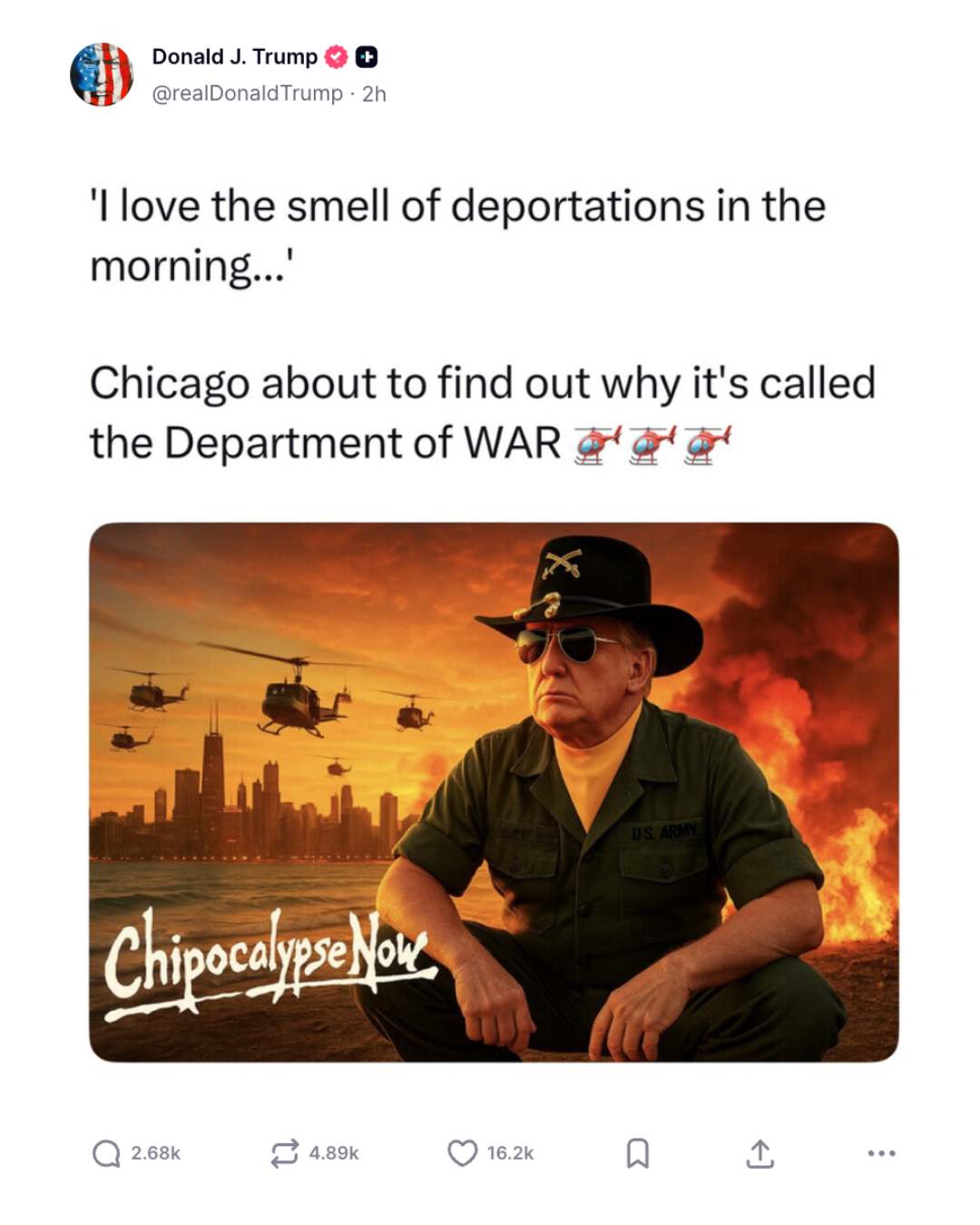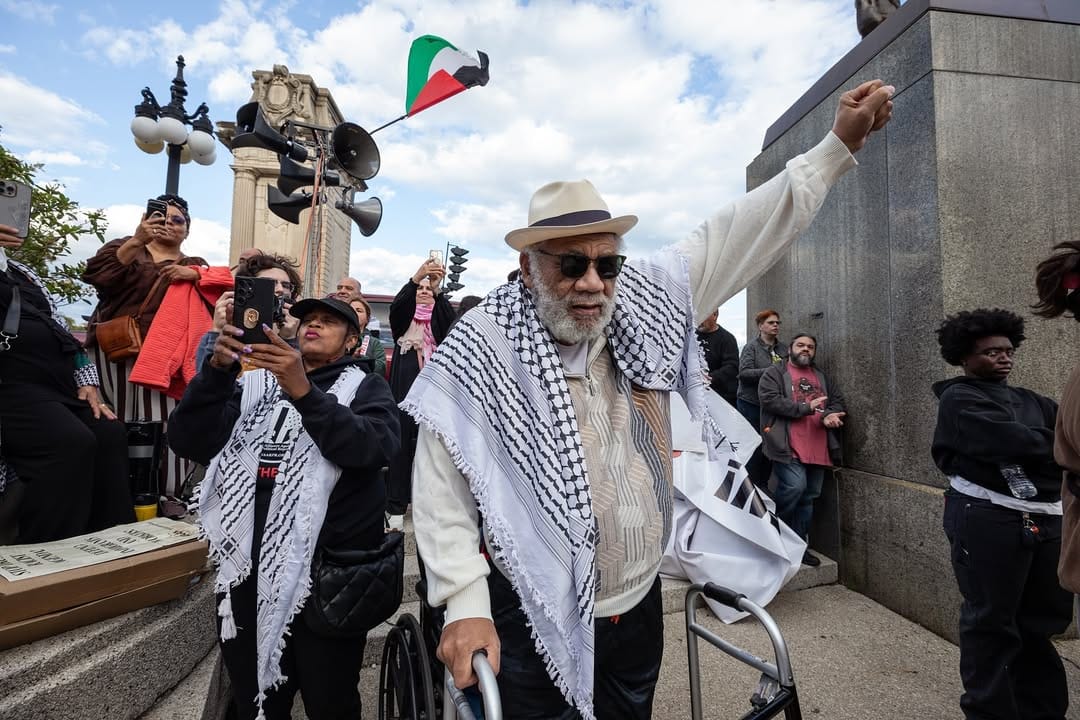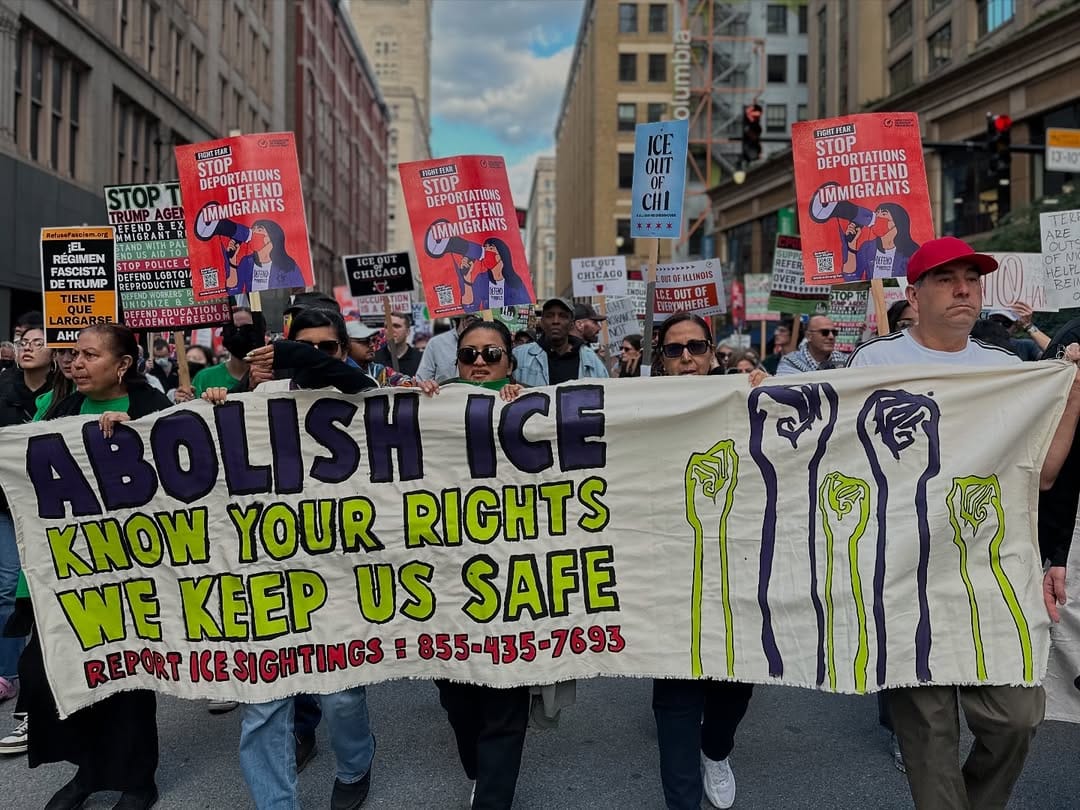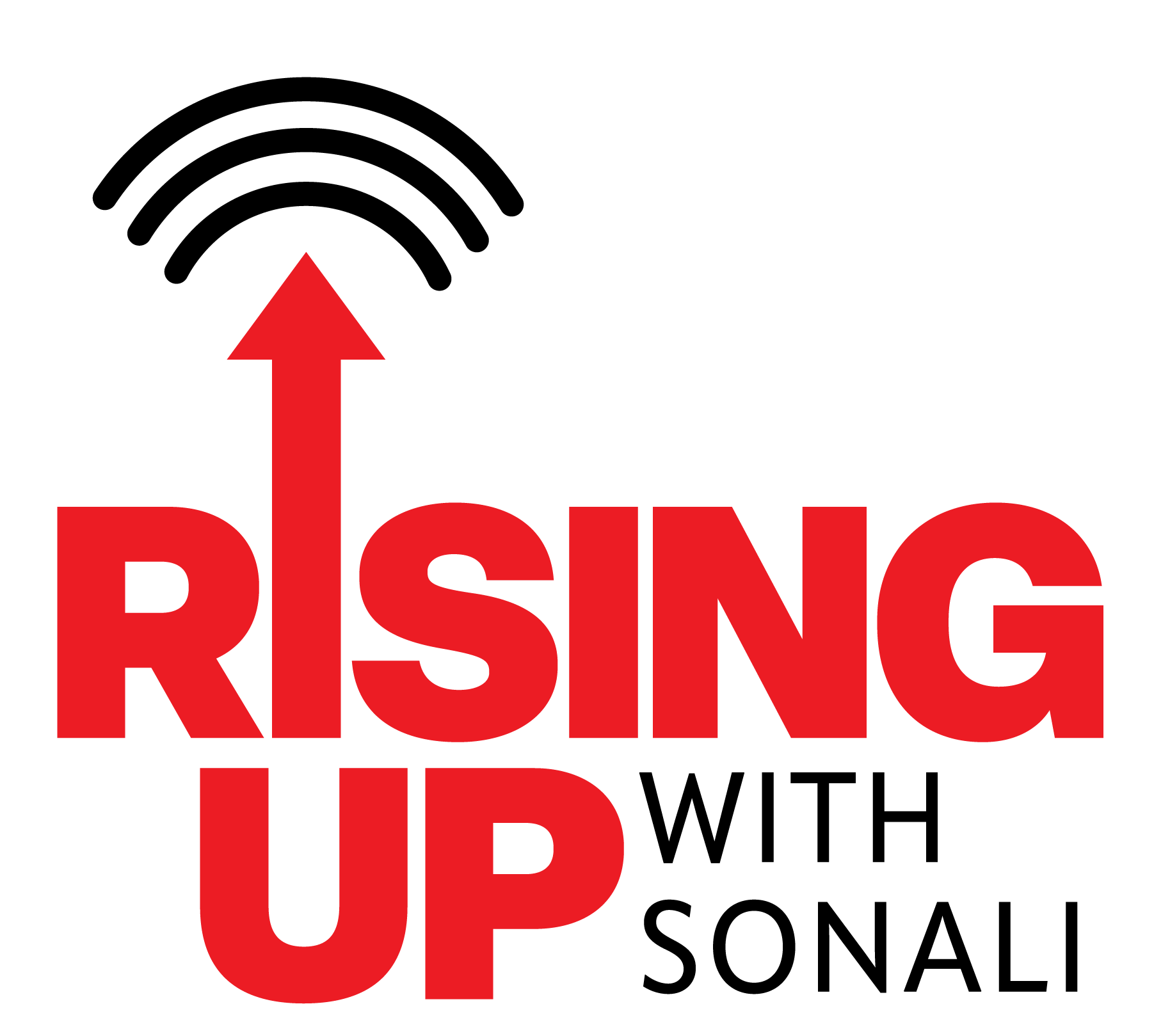How to Fight Trump's War on Cities?
This weekend when I saw several people posting on social media that the Mayor of Chicago, Brandon Johnson, had ordered salt trucks to blockade his city from Immigration and Customs Enforcement, I'll admit I believed it for a moment. The dramatic sounding defense came on the heels of a very real posting by President Donald Trump declaring war on the city of Chicago:

Riling up the people is central to Trump's power flex. That is not to say we ought not to take him seriously. On the contrary, had individuals and institutions with the power to stop him ten years ago (yes, it's really been a decade since he first began campaigning to be president in 2015), taken him at his word, we may not be where we are today.
So, when online rumors began flying that Chicago mayor Brandon Johnson was deploying massive trucks to protect his city, it was so tempting to believe them. The reports have since been declared untrue. But the powerlessness we feel and the longing for someone to stand up to the president, is so strong, we may fall for anything if we're not careful.
SOLUTIONS JOURNALISM FOR SOCIAL JUSTICE
This program is brought to you entirely by subscribers.
Always independent. Never beholden to corporate or state actors.
The very real news of Chicagoans mobilizing against Trump's planned invasion was heartening. A mass protest through the city organized by the Illinois Coalition for Immigrant and Refugee Rights (ICIRR) drew thousands of people. But mass protests alone aren't going to cut it.
I reminded myself of something I think about often: how the fight for justice long predated Donald Trump, especially for low-income and other people from marginalized communities. And the project of building a better world will last a lot longer than Trump and his reign of terror.
If you missed my interview last week with Richard Wallace of Equity and Transformation (EAT), a local Chicago-based abolitionist, reparationist organization, do check it out.

In it, Wallace explains how, in the short term, his organization is working with groups like ICIRR, as well as radical attorneys to protect against Trump's federal police and to produce Know-Your-Rights literature for city residents. And, in the long term, the work EAT is doing on guaranteed income, for example, paves the way for a radical shift in how we think about economic justice, capitalism, and racial equity. We cannot organize only short term fixes to crises--they won't work. Nor can we only plan long-term justice work while the sky is falling around us.
Those communities most directly impacted by injustices predating Trumpism--Black and Brown folks in particular--have known for a long time what it's felt like to be criminalized, targeted, undervalued, fired, discriminated against, unhoused, stripped of rights, imprisoned, and impoverished.


Photo courtesy of Instagram @icirr_il
And so, when inviting guests to interview on Rising Up With Sonali, I turn to folks who have historically organized for police and prison abolition, who have been fighting for immigrant rights under both Republican and Democratic administrations, who have been demanding reparations and unions and greater investments in public infrastructure, and so on.
It's no coincidence that some of the most imaginative and effective acts of resistance to Trump comes from those marginalized communities for they have the longest experience of living in a Trumpian world.

